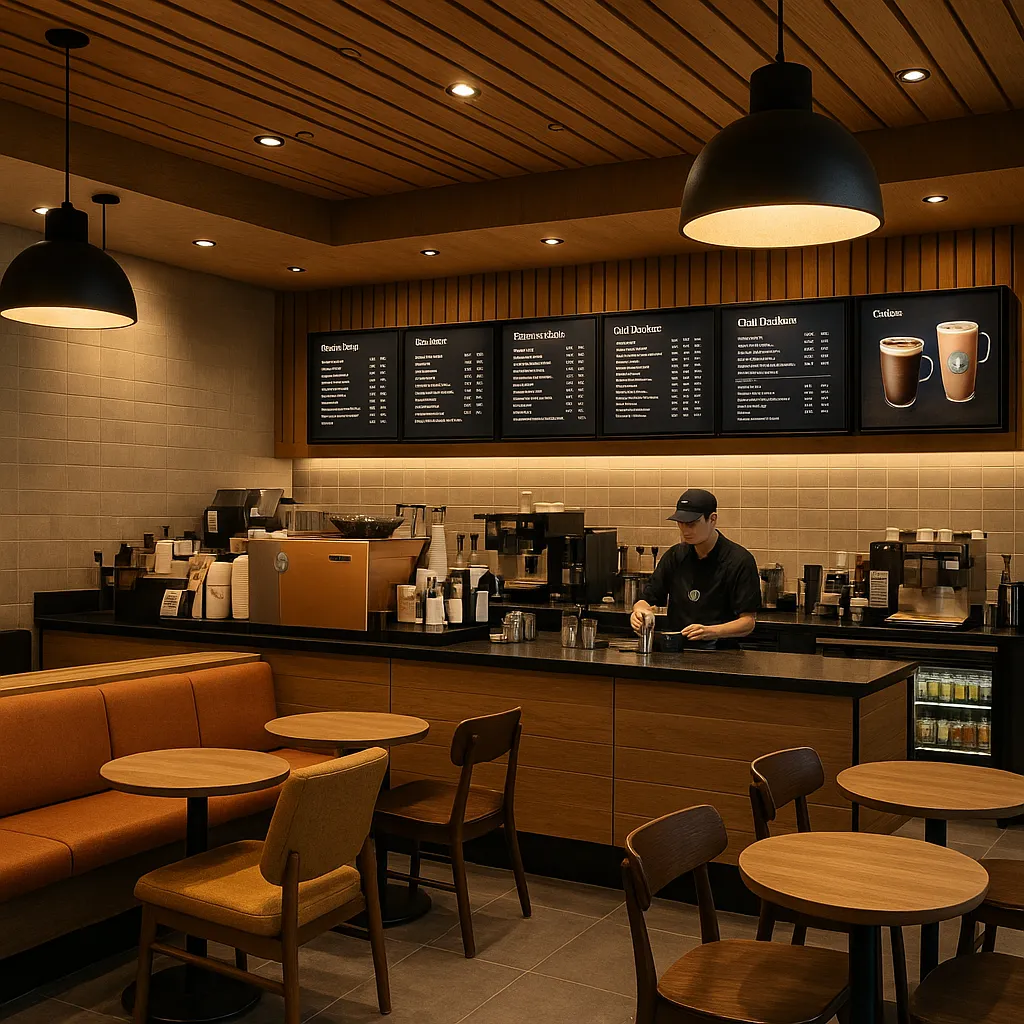Starbucks Faces U.S. Dress-Code Lawsuits, Unveils China Tech Push

Lead Starbucks was hit by class-action lawsuits over its new North American dress code and showcased major digital upgrades at its China Innovation and Technology Center on September 18, 2025.
Nut Graf The lawsuits filed by union-backed employees in Illinois, Colorado and California allege Starbucks violated labor laws by imposing a new uniform policy without reimbursing staff for required attire. Simultaneously, Starbucks China highlighted AI-driven menu boards and customization tools to sharpen its competitive edge in Shenzhen.
Legal Challenge in North America
- On Wednesday, employees in Illinois and Colorado filed class-action suits after Starbucks changed its dress code in May, requiring solid black shirts and specified bottoms while refusing to cover costs of new uniforms. Complaints lodged with California regulators signal potential further litigation if enforcement agencies decline penalties.
- Workers claim the retailer broke state labor statutes by mandating clothing purchases; Starbucks counters that partners received two free shirts and that the policy simplifies branding and improves the customer experience.
Digital Innovation in China
- At the Shenzhen SITC unveiling, Starbucks demonstrated electronic menu boards in over 7,800 stores, AI-based order customization offering 500 flavor-sweetness combinations, and mobile-app enhancements.
- The company reported third-quarter China revenues of $790 million, up 8 percent year-on-year, with same-store sales rising 2 percent-the first positive quarterly gain in six periods.
- CTO Luo Jinpeng emphasized future “technology integrated with humanity” initiatives to expand store concepts and digital-driven customer value.
Additional News in Brief
- Outage reports surfaced mid-day as some customers experienced disruptions with the Starbucks mobile app, prompting social-media buzz and DownDetector alerts.
- In partnership news, Starbucks was confirmed as a founding sponsor of the Los Angeles 2028 Olympics, joining Honda, Comcast and Delta in securing tier-one status for the Games.
Categories
Autos and vehicles Beauty and fashion Business and finance Climate Entertainment Food and drink Games Health Hobbies and leisure Jobs and education Law and government Other Politics Science Shopping Sports Technology Travel and transportationRecent Posts
Gunman Arrested After Country Club Wedding Shooting in Nashua
Trump, Vance Honor Charlie Kirk at Massive Arizona Funeral
DOJ Closes Bribery Probe into Border Czar Tom Homan
Bad Bunny Concludes Puerto Rico Residency with Star-Studded Amazon Livestream
Multiple Shot, Including One Fatality, at Sky Meadow Country Club
Bad Bunny Delivers Historic “Una Más” Livestream Finale from Puerto Rico
‘28 Years Later’ Arrives on Netflix, Three Months After Theatrical Debut
Cyberattack Snarls Check-In Systems at Major European Airports
Premier League Sees Upsets as Liverpool Edges Everton
Chelsea’s Adarabioyo Drafted In After Sanchez Sent Off at Old Trafford
Superman Premieres on HBO Linear Tonight as Streaming Hit
Southern Skies to Darken: Partial Solar Eclipse Looms Tomorrow
Venus’s Square with Uranus Fuels Independence in Today’s Horoscopes
Dublin Airport’s Terminal 2 Evacuated and Reopened After Security Alert
Tell me what happened today 09/20/2025: “tcu” and write it in news format in English.
Clemson University Dismisses Three Employees After Free Speech Controversy
Braun Strowman Unveils USA Network Series and Horror Sequel Role
Noem Launches National ICE Initiative via Social Media
Binance Implements Margin and Leverage Adjustments on September 20, 2025
Spurs Salvage Late Draw at Brighton
Tags
Archives
08/19/2025 (3) 08/20/2025 (40) 08/21/2025 (27) 08/22/2025 (22) 08/23/2025 (4) 08/24/2025 (21) 08/25/2025 (30) 08/26/2025 (24) 08/27/2025 (29) 08/28/2025 (16) 08/29/2025 (9) 08/30/2025 (13) 08/31/2025 (17) 09/01/2025 (167) 09/02/2025 (124) 09/03/2025 (149) 09/04/2025 (112) 09/05/2025 (72) 09/06/2025 (169) 09/07/2025 (162) 09/08/2025 (150) 09/09/2025 (176) 09/10/2025 (194) 09/11/2025 (194) 09/12/2025 (186) 09/13/2025 (207) 09/14/2025 (159) 09/15/2025 (175) 09/16/2025 (198) 09/17/2025 (196) 09/18/2025 (196) 09/19/2025 (207) 09/20/2025 (129) 09/21/2025 (4)